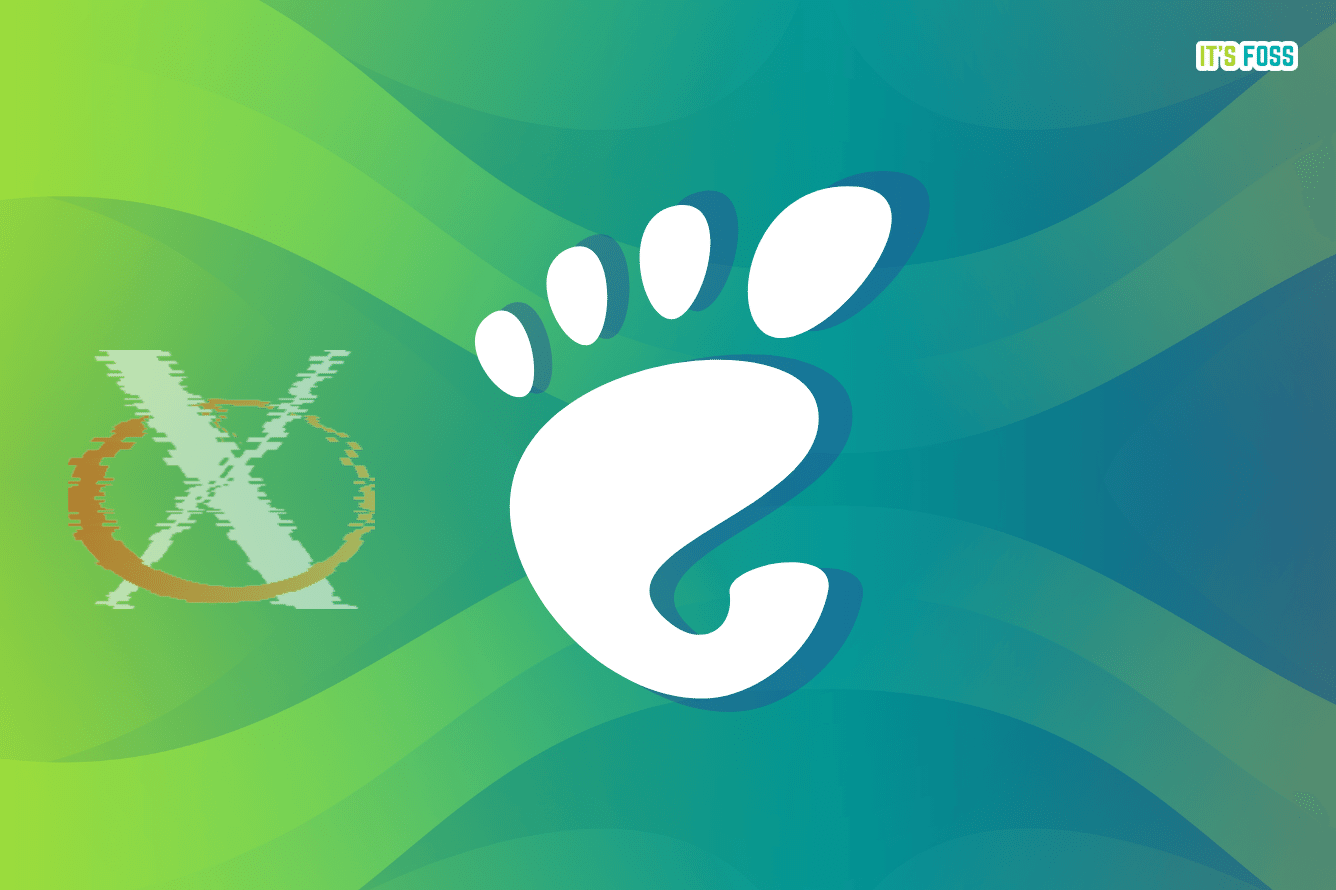
GNOME has been steadily moving toward a Wayland-only future, aiming to phase out its old X11 session that many consider outdated and difficult to maintain alongside modern code.
The idea was simple: disable X11 sessions in GDM by default, keep the code available for distributions, and let those still relying on X11 desktops continue using them.
That was the plan, until a last-minute change in GNOME 49 turned things around.
What's Happening: In a turn of developments (pun intended), Adrian Vovk, a member of the GNOME Release Team, has merged a change that re-enables X11 session support in GDM for the GNOME 49 release candidate.
The problem came down to the x11-support switch. Flipping it off did not just kill old bits like XDMCP; it also stopped GDM from even looking at /usr/share/xsessions, which meant no X11 desktops would show up on the login screen.
As Adrian notes in the merge request:
The x11-support switch, when turned off, disables GDM's entire X11 support, including the ability to launch X11 desktop environments. GDM no longer even looks into /usr/share/xsessions to advertise those sessions as available.
I've attempted to surgically remove the parts necessary for launching modern X11 sessions from the overall x11-support switch, while keeping the more horrible parts of X11 support (XDMCP, x11-legacy displays, non-user-session displays, etc) under its control. This is hard, requires some pretty arbitrary X11 code to exist outside of the switch's control, and frankly is just incorrect.
What Now: This return of X11 support is only temporary. The GNOME developers are clear that their intention hasn’t changed: X11 is still being phased out. The updated timeline now points to GNOME 50, where most of GDM’s X11 code will be removed outright.
At that stage, GDM will only keep the ability to launch modern X11 desktop environments such as Cinnamon, Xfce, and MATE, while legacy features like XDMCP and non-user X11 displays will disappear.
For GNOME itself, nothing changes. GNOME Shell on X11 remains disabled, and Wayland continues to be the only supported session going forward.
Suggested Read 📖

- Even the biggest players in the Linux world don't care about desktop Linux users. We do.
- We don't put informational content behind paywall. Your support keeps it open for everyone. Think of it like 'pay it forward'.
- Don't like ads? With the Plus membership, you get an ad-free reading experience.
- When millions of AI-generated content is being published daily, you read and learn from real human Linux users.
- It costs just $2 a month, less than the cost of your favorite burger.
Become a Plus Member today and join over 300 people in supporting our work.











